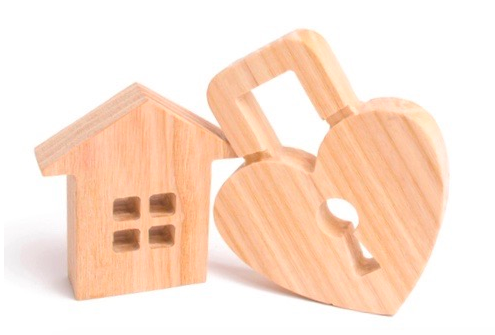
Trust Issues?
(as reposted from the Abio blog…)
We have trust issues.
When legendary singer Aretha Franklin died recently, she didn’t leave a will or a trust for her estimated $80 million estate. No instructions about how to split her assets among her four children or deal with creditors and extended family members who might claim portions of her estate.
That got us thinking. More than half of Americans don’t have a will or trust – important estate planning documents that, after a person dies, allow their survivors to avoid an expensive and long probate process.
“We have a responsibility to talk to our friends, families, and our clients about how crucial it is to protect the things they worked so hard for,” says Abio real estate agent Vikki Bearman. “Especially in California, where, for many of us, our biggest assets are our properties.”
So, here is our primer on wills, trusts, and probate:
» What is a will versus a living trust?
A will goes into effect upon your death and is commonly used to specify how and to whom your assets will be distributed and to name guardians for young children.
Before your final wishes may be carried out, the will must be filed in probate court and validated by a judge.
A revocable living trust goes into effect during your lifetime and specifies how you, your bills, and your heirs will be taken care of if you become ill or otherwise incapacitated. A trust also can include provisions of care for a special needs child or other loved one. The document names the trustee(s) who will manage your affairs.
Property held in trust does not go through a probate process upon your death. Rather, the successor trustee you named in your trust will control the property and distribute it under terms you laid out in your trust agreement.
Bottom line: A trust allows you to bequeath your assets privately and efficiently without going into probate.
» What is probate?
Probate is the court-supervised process for authenticating a will, distributing your property, and paying creditors after you die.
If you have a will or trust, your designee or attorney representing your estate distributes your assets as you instructed and pays any bills and taxes your estate may owe at your time of death.
No estate planning documents? A probate court proceeding must be held to determine how to divide your estate.
» How does having a trust save my heirs money when I die?
Actually, many experts say having a trust in place can save money and time.
Probate proceedings can take anywhere from a few months to more than a year. And attorney and court fees consume 5 percent of an estate’s value in many states, according to Nolo.com, a Berkeley-based publisher of DIY legal books and software.
Worst case without a trust: An expensive and long court battle over your assets by creditors and family members competing for portions of your estate. That’s what legal experts are predicting in Aretha Franklin’s case. The intensely private queen of soul’s financial details soon could become very public in probate court.
» Should I put my house in a trust?
A main reason to place your home in a trust is to keep it out of probate.
Obviously, the bigger your estate, the more need you have for a trust to avoid probate and save money for your inheritors. But you also don’t have to be a Getty to need a trust.
Every situation is different and state laws differ, which is why we recommend working with an experienced estate planning attorney.
Ask your expert lots of questions about the pros and cons, about how placing your house in a living trust may or may not affect future plans to sell and buy new property, about homeowner and title insurance, and about tax assessments.
» Where can I get more info on estate planning?